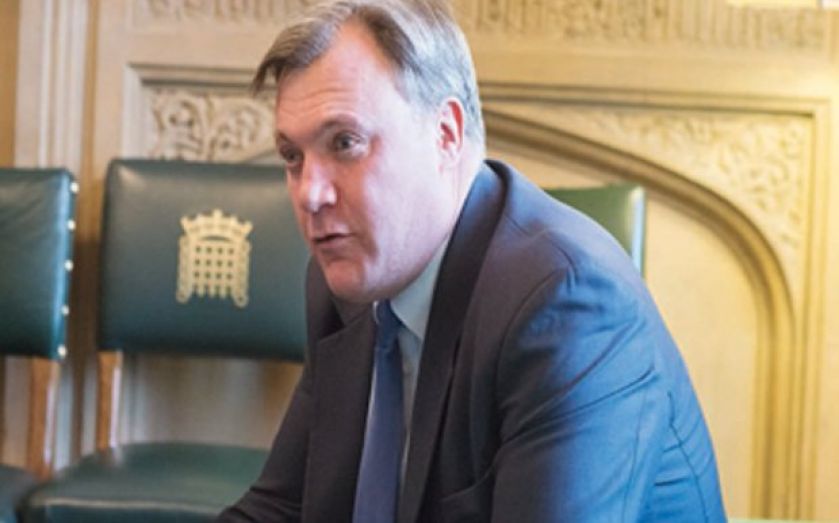Balls: Markets alone won’t deliver for UK

INTERVIEW Labour’s shadow chancellor Ed Balls discusses markets, exports and business backing with David Hellier
IT’S BEEN a bit of a bruising few days for those in the Labour Party charged with finessing its relationship with the UK’s top business leaders. But that won’t stop Ed Balls relishing the prospect of speaking at the British Chambers of Commerce’s annual conference today in front of hundreds of business leaders.
Rather than viewing the assignment as stepping into the lions’ den, the shadow chancellor sees the conference as an ideal place at which to test the temperature and the mood of the business sector.
“If you want to feel the pulse of what’s going on, the chamber of commerce is a really good place to be.”
Balls appears to be growing in confidence about his and his party’s message for business, despite some outspoken criticisms made by leading business leaders in the past few days. He appears relatively untroubled by claims from those like former M&S boss Stuart Rose or Stefano Pessina, the acting chief executive of Walgreens Alliance Boots, that it would be damaging for the economy if Labour was elected.
“The reality is that there are some business leaders who are signed up and active members of the Conservative Party and there are some who give money to Labour,” says Balls. “The majority of people who lead and work in businesses are not party political.”
“I don’t find that people think we are on a different side. We’re all working for the same objective, an economy which works in a long-term way, has sufficient investment and can deliver living standards for all.”
Balls says the British Chambers of Commerce conference gives him an ideal platform to put forward policies which he firmly believes are pro-business.
The key planks of the shadow chancellor’s strategy rest on staying in Europe; investing in long-term skills training; setting up a business investment bank and having a long-term plan for infrastructure projects.
Labour intends to set up a National Infrastructure Commission to identify Britain’s long-term needs as one of its priorities if it’s elected in May.
Europe is the subject that possibly unites Labour with more business leaders than any other, with strong business support for reforming the UK’s membership of the EU from within.
“When you have Cabinet ministers openly speculating about leaving Europe, you are playing fast and loose and there’s a high risk to business.”
“If we say we’re considering walking away, there’s a danger that becomes a self-fulfilling prophecy.”
He finds the economy in better shape than it was but he is worried about several, what he terms, structural issues.
For instance, he says that Britain’s export performance has worsened over the past few years and that the country has gone backwards on vocational training. These issues, he argues, are the result of a lack of long-term thinking in government, which has seen the economy grow on the back of falling commodity prices.
He says Britain’s export performance has come in at 22 out of 28 countries since 2010 in terms of export growth. “We need to ask some questions here like what can we do to support the export market and what can a British investment bank do.”
To those who say that Labour is anti-markets, Balls replies: “We have shown a huge understanding of how the markets work. Markets are really powerful in driving incentives but you need to write the rules of the game. Without them you get a lack of investment, collusion and a lack of competition.”
“Markets alone won’t deliver long-term infrastructure, or stability for the energy industry or vocational learning. Markets can not fund a basic science base.”
“But a proper plan must understand the dynamism of a market economy and ensure that government plays its proper role in assisting that.”
The government’s role in policing HSBC’s tax avoidance scheme in Switzerland is also troubling Balls.
“I want the financial services industry to succeed in the future but for that to happen we need the City and other financial professional services to be seen to be working to tougher standards and to tighter regulation. Every time we have a case like this, or Libor, or FX fines, this sets back London’s standing.”
Balls then reflects on his time as City Minister. “When we set up the Financial Services Authority we wanted to move beyond the era of self-regulation and the Conservatives said we were being too tough… in retrospect we weren’t tough enough.”